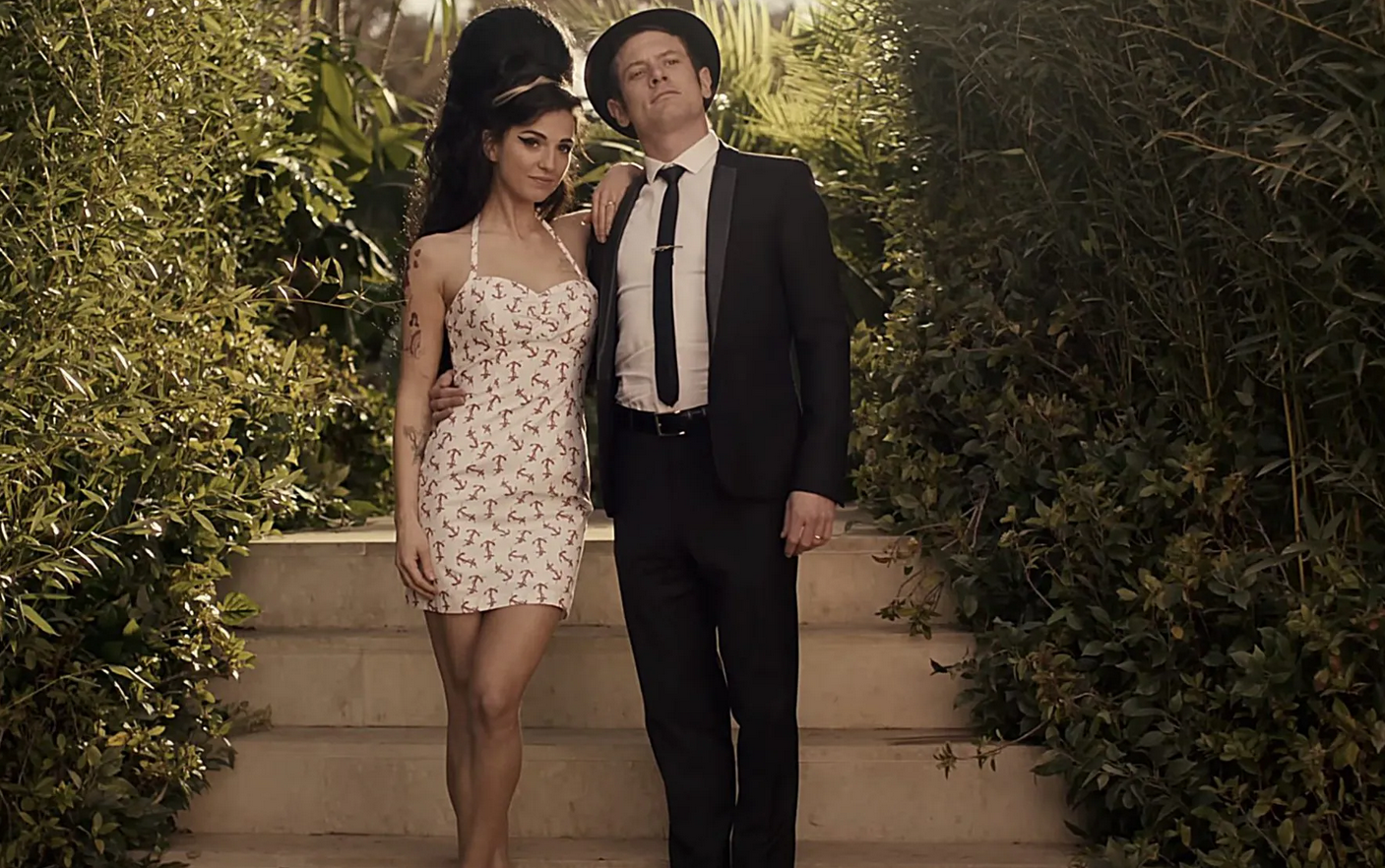In the annals of music history, few artists have left as indelible a mark as the incomparable Amy Winehouse. In the recent the soul-stirring musical-drama biopic Back to Black (2024), director Sam Taylor-Johnson (whom previously directed movies like Fifty Shades of Gray and Nowhere Boy) pays a touching homage to the troubled songstress, capturing the highs and heartbreaking lows of her life.
From the very beginning, it’s evident that Back to Black is a labor of love, honoring a talent lost too soon. Taylor-Johnson approaches Winehouse’s story with a delicate touch, blending archival footage, intimate interviews, and stunning reenactments to create a cinematic experience that feels both intimate and immersive.

Amy Winehouse’s music was inspired by a rich tapestry of influences, ranging from jazz to R&B and hip-hop. Growing up in North London, Winehouse was surrounded by music from an early age, with her parents exposing her to a diverse array of genres and artists. One of the most significant influences on Winehouse’s musical style was jazz, particularly the sounds of legendary artists like Billie Holiday, Sarah Vaughan, and Dinah Washington. Winehouse was captivated by the emotive power of jazz music, and she drew heavily from its traditions in her own songwriting and vocal delivery.
Winehouse was also inspired by the vibrant music scene of London, where she honed her craft in the city’s jazz clubs and underground venues. But perhaps the most significant inspiration for Winehouse’s music came from her own life experiences. Known for her candid and confessional songwriting, Winehouse drew heavily from her own struggles with addiction, heartbreak, and mental health issues. Her songs were deeply personal and often served as a cathartic outlet for her emotions, allowing her to confront her demons and connect with listeners on a deeper level. She used to say, “I want people to hear my voice and just forget their troubles for five minutes.”

The most memorable thing about the film is a tour-de-force performance by Marisa Abela, who embodies Winehouse’s complex persona with astonishing depth and nuance. From her powerhouse vocals to her trademark 1960’s beehive hairstyle, which was inspired by her love for vintage fashion, and bold, winged eyeliner, Marisa captures every inch of Winehouse’s larger-than-life personality, breathing new life into the iconic singer’s legend.
However, Back to Black is more than just a showcase for Marisa’s remarkable talent. It’s a soul-stirring exploration of Winehouse’s inner demons and outer struggles, from her battles with addiction and mental health issues to her tumultuous relationships and relentless pursuit of artistic perfection. Taylor-Johnson pulls no punches in depicting the darker aspects of Winehouse’s story, offering a raw and unvarnished look at the pain and turmoil that plagued the troubled singer throughout her life.

Amy Winehouse’s tragic love life with her soulmate Blake Fielder-Civil serves as a central theme in both the song and the movie Back to Black, offering a glimpse into the troublesome relationships that inspired and plagued the iconic singer-songwriter throughout her life. From her early romances to her never-meant-to-be marriage that lasted only two years, Winehouse’s journey through love was marked by passion, pain, and heartbreak.
Yet, amidst the darkness, there are moments of profound beauty and vulnerability. Taylor-Johnson captures the essence of Winehouse’s music with breathtaking precision, allowing viewers to experience the real emotion and unfiltered honesty that defined her artistry. From the haunting melodies of “Back to Black” to the defiant anthem of “Rehab,” each song serves as a poignant reminder of Winehouse’s brilliance and enduring legacy.
Amy Winehouse’s death was a tragic culmination of a long-standing battle with addiction and mental health issues. While her love life may have played a role in exacerbating these struggles, her passing serves as a stark reminder of the devastating toll that addiction can take on individuals, regardless of their fame or talent.
Finally, Back to Black stands as a testament to music’s ability to transcend adversity, serving as a tribute to Amy Winehouse’s enduring influence. With its captivating visuals, compelling performances, and soulful soundtrack, the film pays homage to a talent that left an indelible mark on the world. As Amy Winehouse’s spirit continues to resonate with music lovers far and wide, Back to Black ensures that her legacy will live on for generations to come.




